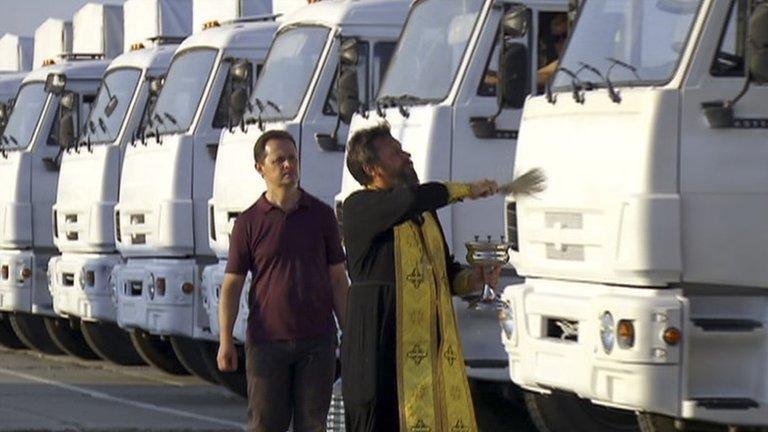EU tackles crises in Iraq and Ukraine
- Published
- comments
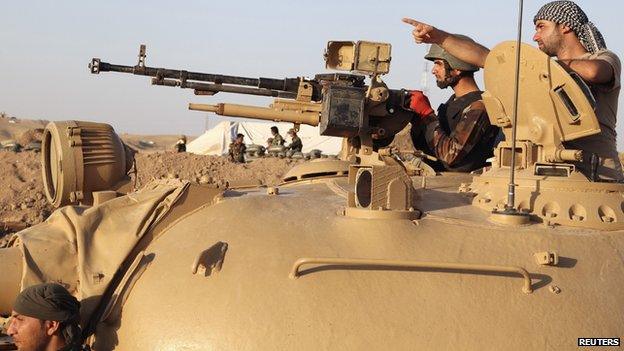
Kurdish Peshmerga fighters have prevented IS militants from reaching Irbil
EU foreign ministers meeting in Brussels have broadly welcomed moves by some European countries to provide military material to the Kurds.
The agreement only recognised reality. The French are already supplying weapons.
French Foreign Minister Laurent Fabius said that France was one of the first countries to act by providing humanitarian assistance and arms. "And the reason why I asked for this meeting is so that all of Europe mobilises in this effort."
The meeting was a response to those who said the EU had been on the sidelines of the crisis. It also gave the French some political cover, and agreement by the foreign ministers was intended to let the Kurds feel the Europeans were in their corner.
The UK said it would "consider favourably" any request to send arms to the Kurds. The Czech government said it would be in a position to start deliveries of munitions by the end of the month.
Germany is legally prevented from arming countries involved in conflict, but German Foreign Minister Frank-Walter Steinmeier said he would go to the limit of "what is legally and politically possible" to help the Kurds, and he will travel to Iraq shortly.
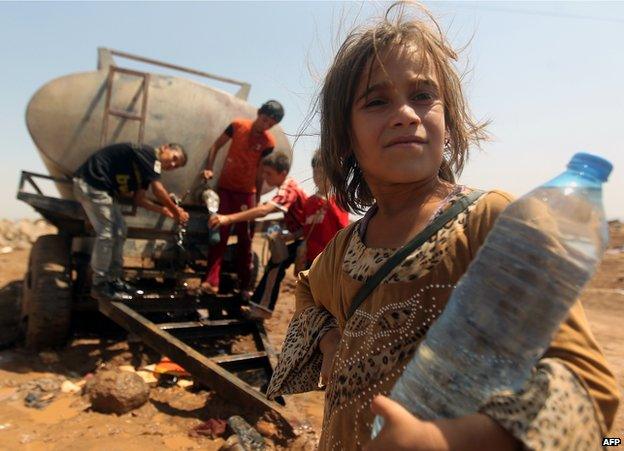
Thousands of minority Yazidi people have fled from Iraq to Syria as IS militants advance
Iraq aid effort
The foreign ministers agreed, external to provide a humanitarian air bridge to help those refugees driven from their homes, but there was little detail as to the funding or the timetable.
Downing Street says two planeloads of UK aid are on their way to Irbil, destined for the Dohuk refugee camp. The UK says its top priority is tackling the dire humanitarian situation. It suggests there are now 450,000 displaced people.
But there appear to be no plans at either EU or UK level to enable those who have been driven out of their homes to return. That would involve a much more direct air campaign against Islamic State (IS) militants, and there does not seem to be the political will to do this.
The EU will also assess how to prevent the IS fighters from capitalising on any oil sales from fields they have captured. The UK has also been pushing the UN to freeze asset flows from those financing the IS military campaign.
It was always going to be difficult for the EU to give a robust response. After all, the EU cannot supply arms - that is a decision for national governments. And not every EU state supports sending weapons.
The strategy seems to be to hope a better-armed Kurdish Peshmerga force and a more inclusive Iraqi government will push IS fighters back and contain them.
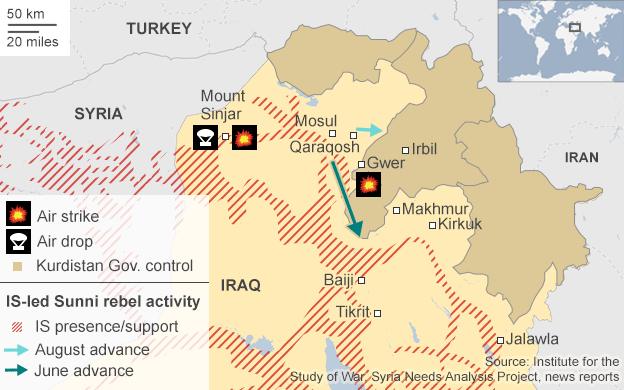
Warning to Russia
Even while the foreign ministers were meeting, there was news that a Russian convoy inside Ukraine had been attacked and partly destroyed by Ukrainian artillery.
The news has renewed tensions.
The EU said that any unilateral military action by Russia in Ukraine would be "a blatant violation of international law".
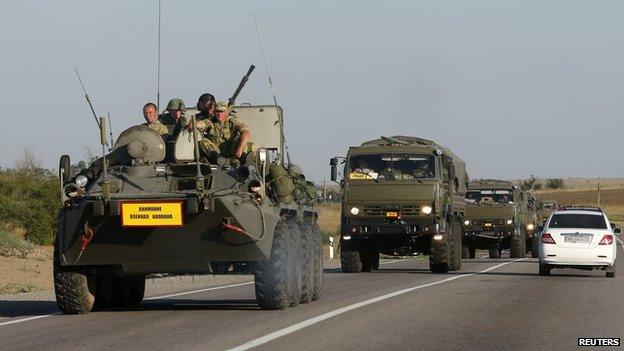
The EU is concerned about Russian troop movements on Ukraine's border
There are continuing concerns that a humanitarian convoy could be used as a pretext for wider Russian involvement.
The foreign ministers warned that they were ready to consider further sanctions "in light of the evolution of the situation on the ground".
But it may prove difficult to get unanimity. Both the Hungarians and Slovaks are now openly criticising EU sanctions. President Putin today said the sanctions were endangering the global economy.
So, once again, these are tense and dangerous times in Ukraine.
On Sunday the Russian Foreign Minister, Sergei Lavrov, and his counterparts from Ukraine, France and Germany will meet in Berlin. It may prove a crucial meeting.
- Published15 August 2014
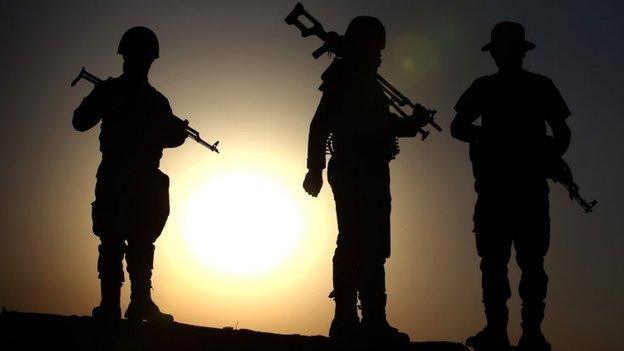
- Published14 August 2014
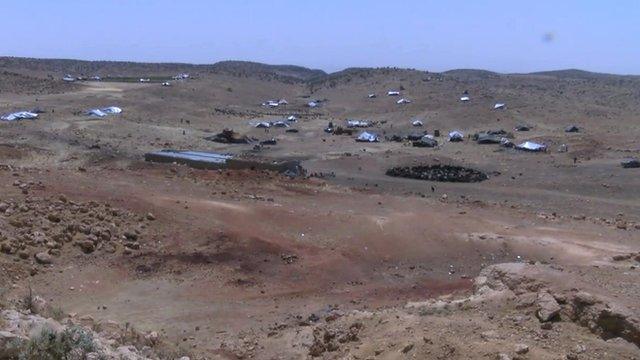
- Published22 August 2014
